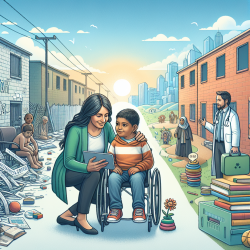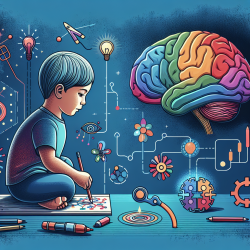Empowering Change: Bridging the Gap for Children with Disabilities
As a passionate advocate for children, I am constantly seeking data-driven solutions to improve their lives. A recent study titled “The System Tends to Scoop You Up and Spit You Out and They’re Done With You”: The Intersection of Intellectual/Developmental Disability and Homelessness From the Perspectives of Service Providers offers critical insights into the challenges faced by service providers working with children who have intellectual and developmental disabilities (IDD) and are experiencing homelessness.
Understanding the Challenges
The study highlights the struggles service providers face in delivering appropriate and accessible services to children with IDD who are homeless. These challenges include a lack of training and awareness of specific needs, fragmented systems, and inadequately funded healthcare and housing support. The study underscores the importance of recognizing the unique needs of this population and the necessity for systems transformation.
Data-Driven Solutions
To improve outcomes for these children, service providers must adopt a data-driven approach. This involves:
- Collaborating across sectors to ensure comprehensive care and support.
- Utilizing data to identify gaps in service delivery and to inform decision-making.
- Implementing person-centered care plans that address the individual needs of each child.
By leveraging data, service providers can better understand the complexities of each child's situation and tailor interventions accordingly.
Encouraging Further Research
The study also calls for further research into the intersection of IDD and homelessness. Practitioners are encouraged to explore the following areas:
- Developing training programs to enhance provider awareness and skills in working with this population.
- Investigating the impact of systemic changes on service delivery and outcomes.
- Exploring innovative solutions for cross-sector collaboration and data sharing.
By engaging in research, practitioners can contribute to a deeper understanding of the challenges and solutions for children with IDD experiencing homelessness.
Conclusion
Service providers play a crucial role in supporting children with IDD who are homeless. By adopting data-driven approaches and engaging in further research, practitioners can enhance their skills and improve outcomes for this vulnerable population. Together, we can create a more inclusive and supportive system that empowers children to thrive.
To read the original research paper, please follow this link: “The System Tends to Scoop You Up and Spit You Out and They’re Done With You”: The Intersection of Intellectual/Developmental Disability and Homelessness From the Perspectives of Service Providers.










